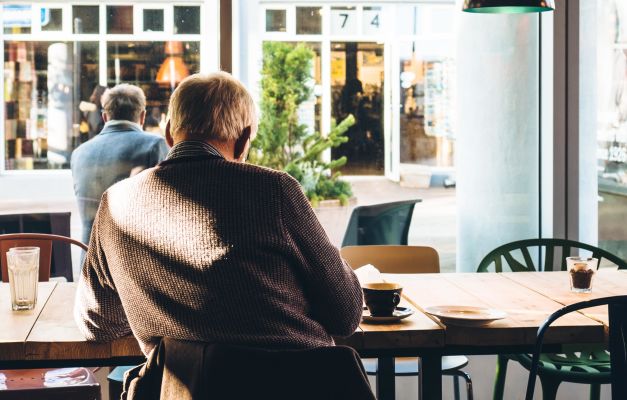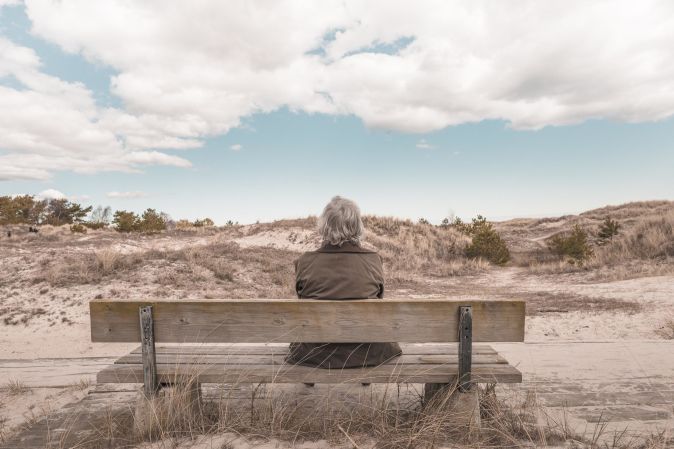
There are many golden moments of aging. It comes with invaluable wisdom and experience, enjoying the growth of your family, and reflecting on your life's accomplishments. Unfortunately, it also brings loss. Friends, family members, and beloved pets pass away. When it comes to animal companions in particular, others may not always understand the magnitude of pain you may be feeling – especially as a senior citizen. Getting through this loss, therefore, may require as much or more fortitude and wisdom than any other challenge you'll face during this phase of your life. Let us support you by providing some resources and guidance for working through your emotional pain - regardless of which stage of grief you're in.
The Important Role Pets Play in the Lives of Seniors
Perhaps you are retired, for instance, and have no work to keep you busy as you grieve. Maybe you live alone and your pet was the only company you had on a daily basis. Or it could be that caring for your four-legged friend gave you a sense of purpose. Loving a pet has allowed you to do the following:
- Feel Productive: It’s been up to you to provide exercise, emotional companionship, access to veterinary care, food, and water to your pet. The resulting feelings of self-worth likely motivated you to take good care of yourself so you can meet your furry friend's needs. Without your pet, you may question why you should stay active. There may no longer be a clear meaning to your routine.
- Feel Like Part of a Family: Pets provide unconditional love and closeness. They are also the recipients of our communication - even if they don't reply back in our human language. The emotional and physical connection you have had with your pet has offered a sense of security. When an animal dies, the resulting emptiness and silence can be overwhelming. The loneliness may seem unbearable, especially if your human family is geographically far away.
- Feel Physical Affection: Depending on how and where you live, your pet may be your main source of physical affection. Whether your dog gave you daily likc kisses or your cat nuzzled with you as you slept, having the touch of another living being in your home and in your life has no doubt been important. Facing days without such tangible interactions can seem daunting, to put it mildly.
- Feel Connection to Others Lost: For many, a pet represents a connection to other lots family and friends. For instance, you may have received your hamster as a gift from your best friend who has since passed away. Or perhaps you shared caretaking duties for your parakeet with your spouse who has been moved to a long-term care facility. Losing this animal companion may therefore represent a severing of ties to the past.
Regardless of what your fur friend has meant to you, the emotional pain of the loss may leave you with a feeling of being lost and may also trigger past grief. It may even put you in touch with your own changing health and mortality. Whatever the case may be, being a senior dealing with pet loss requires special attention.
The point of all of this is to affirm and recognize that your pet loss is real and legitimate. Don't let anyone tell you to get over it. Never feel delegitimated by those who try to tell you that it's not as bad as you make it out to be. Trust that what you are experiencing is as profound any any other loss you may have already experienced - or those you have yet to face. Give yourself to take the time and energy you need to take care of yourself during this bereavement period.
How to Navigate the Loss of a Pet as a Senior
Tiny Pet Memories is a community of people who support one another through pet love and loss. You'll find all kinds of resources and guidance for moving through the mourning process throughout the site. But here are a few of the key aspects of self-care you can implement in your life right now.
- Find Another Source of Joy: You invested time in your pet. Now you can invest it in something else. Do some volunteer work, pick up a hobby, or take a class that stimulates your creativity and allows you to experss your grief in different ways. When you’re ready – and it’s important to take as much time as you need – you might decide to adopt another pet.
- Connect With Friends: Break the isolation by contacting friends or making new ones. You can build relationships in your spiritual community, for instance, or while you do volunteer work. Perhaps there are some welcoming individuals in your neighbourhood with whom you should develop a friendship. An online grief support group may even be helpful. Personal interaction will make it easier for you to avoid depression and complicated grief.
- Seek Professional Support: Today there are many support groups, grief hotlines, and therapists who specialize in pet loss. We've got all kinds of listings - both local and national - that will help you find the extra emotional help you may need to navigate your grief.
- Exercise: If your health allows, consider getting more active by joining a gym or taking part in a yoga class. If you enjoy walking, swimming, playing tennis, or some other activity, go for it. Physical activity is good for your grief because it benefits your immune system, mood, and energy level. It’s also another way to connect with people.
Pet loss is by far one of life’s most trying experiences. As someone in your golden years, you may find it to be one of the greatest challenges you've faced yet. Be gentle with yourself as you work through it, and find the compassion and healing you really need.
You're going to need help during this journey. Build out your web of support during pet loss by using this free printable which will take you through a brainstorming session for identifying people who can help you.
Images: Mikael Kristenson, Jeff Sheldon
Affiliate Disclosure: There may be affiliate links on this page which help to pay for Tiny Pet Memories. If you make a purchase through a link I provide, thank you because it may allow me to earn a small commission at no additional cost to you. I am not paid to promote specific products. Any opinions I express are strictly my own.
Health Disclaimer: I’m passionate about wellbeing and health but I’m not a medical professional, nor am I a licensed therapist. Any content you read on this site is intended for inspiration and for information only – by not means am I providing medical advice. Please consult your certified professional for personalized recommendations on the mental health or physical health ideas I write about.

